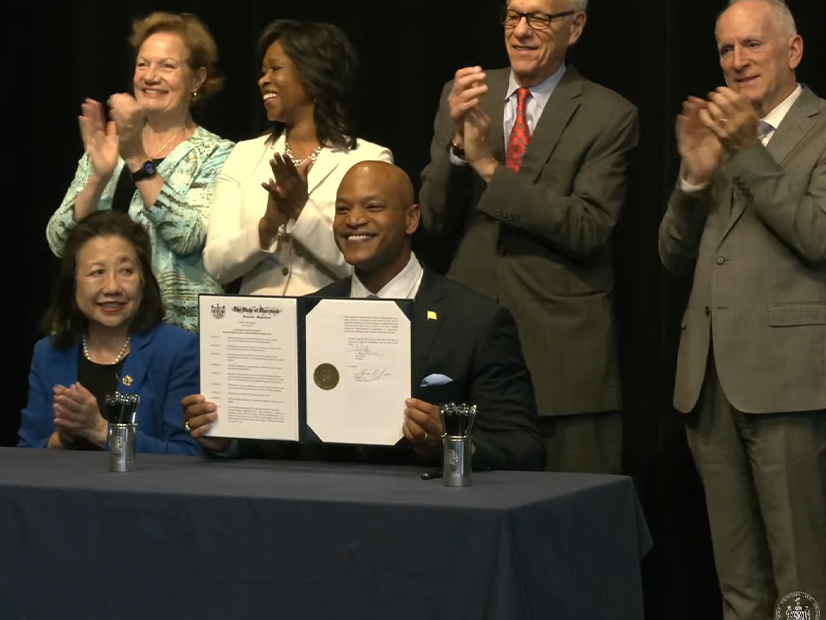
Maryland Gov. Wes Moore (D) signed a sweeping executive order June 4 calling for the state to establish a zero-emission heating equipment standard and a new clean heat standard to be added to the state’s Renewable Portfolio Standard.
The order also calls for formation of a Governor’s Subcabinet on Climate, which will oversee the efforts of other state agencies to implement the state’s Climate Pollution Reduction Plan, released in December 2023, which is the state plan for implementing the Climate Solutions Now Act of 2022.
The law committed the state to cutting its greenhouse gas emissions by 60% by 2031, and Moore also has set a 2035 target for the state to power itself with 100% clean energy. Under the order, the Maryland Energy Administration will develop a framework for a clean energy standard to achieve the 2035 goal and “determine if all or part of the proposed clean energy standards can be implemented through existing authority.”
The executive order notes Maryland has seven years to reach its 2031 goal for emissions reduction and that both short- and long-term investments will be needed to address climate change.
Speaking at the signing ceremony, at Henderson-Hopkins School in Baltimore, Moore called the executive order “one of the most comprehensive executive orders on climate of any governor in Maryland’s history. … It is bold; it is ambitious; and Maryland, we’re going to get it done because that’s what we do. …
“We cannot just talk about climate action in the realm of what are we doing to avoid catastrophe,” Moore said. “It’s always about what are we doing to unleash opportunities.”
The order calls for a “whole-of-government” approach to climate action, including:
-
- Maryland will work with the other states in the Regional Greenhouse Gas Initiative (RGGI) to set a new regional cap for carbon dioxide emissions from power plants that “is aligned with Maryland’s and partner states’ clean energy goals.” RGGI is a regional cap-and-trade program that sets carbon dioxide emission caps and holds quarterly auctions for emission allowances covering 11 New England and mid-Atlantic states, including Maryland.
- By Nov. 1, individual state agencies will be required to submit Climate Implementation Plans on the actions, time and resources they will need to meet the goals of the Climate Pollution Reduction Plan. The subcabinet will submit a progress report on implementation of the plan by Dec. 1 of this year and every following year.
- The state Department of Transportation will upgrade its plans for deploying electric vehicle chargers funded by the federal National Electric Vehicle Infrastructure (NEVI) program and develop a new “multiagency strategy to build out Maryland’s vehicle charging infrastructure.”
Immediate reactions from clean energy and environmental justice advocates were uniformly positive.
“Burning fossil fuels in our buildings is a major source of greenhouse gas emissions in Maryland,” said Josh Tulkin, director of the Maryland chapter of the Sierra Club. “By developing zero-emission heating equipment standards this year, Maryland can make a measurable dent in climate pollution while delivering cleaner, healthier air for residents.”
“Today’s announcement from Gov. Moore not only cements Maryland’s legacy as a climate leader but will create more equitable access to climate and health resources, paying dividends for generations to come,” said Ruth Ann Norton, CEO of the Green & Healthy Homes Initiative. “Phasing in zero-emission heating equipment standards, coupled with policies that build healthier, more affordable homes, will provide urgent relief in the form of cleaner, healthier air for low-income families and a future where all Marylanders can thrive.”



